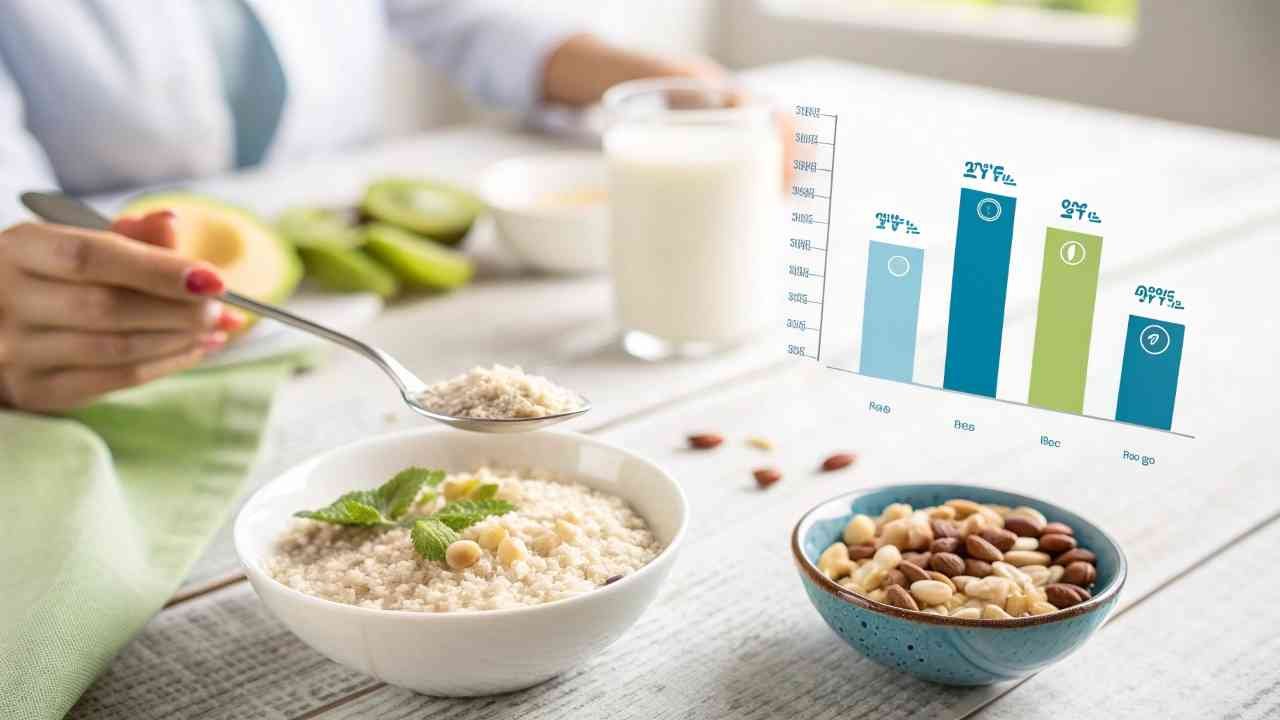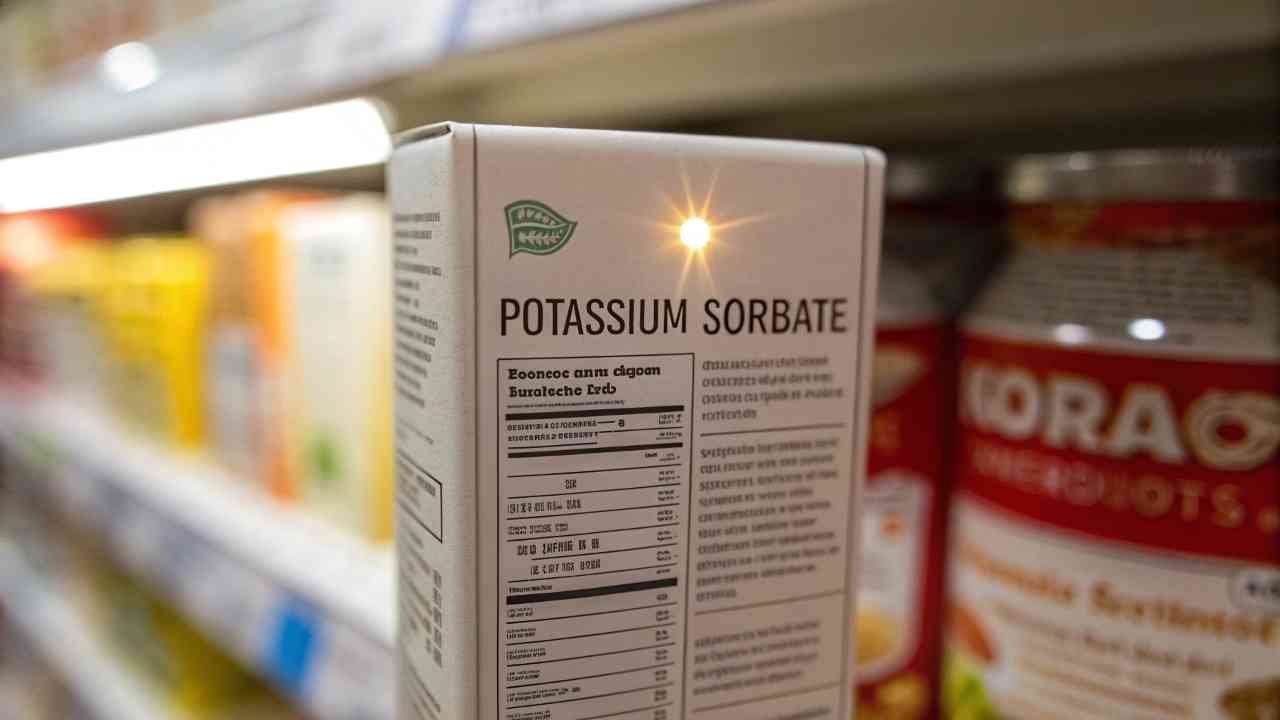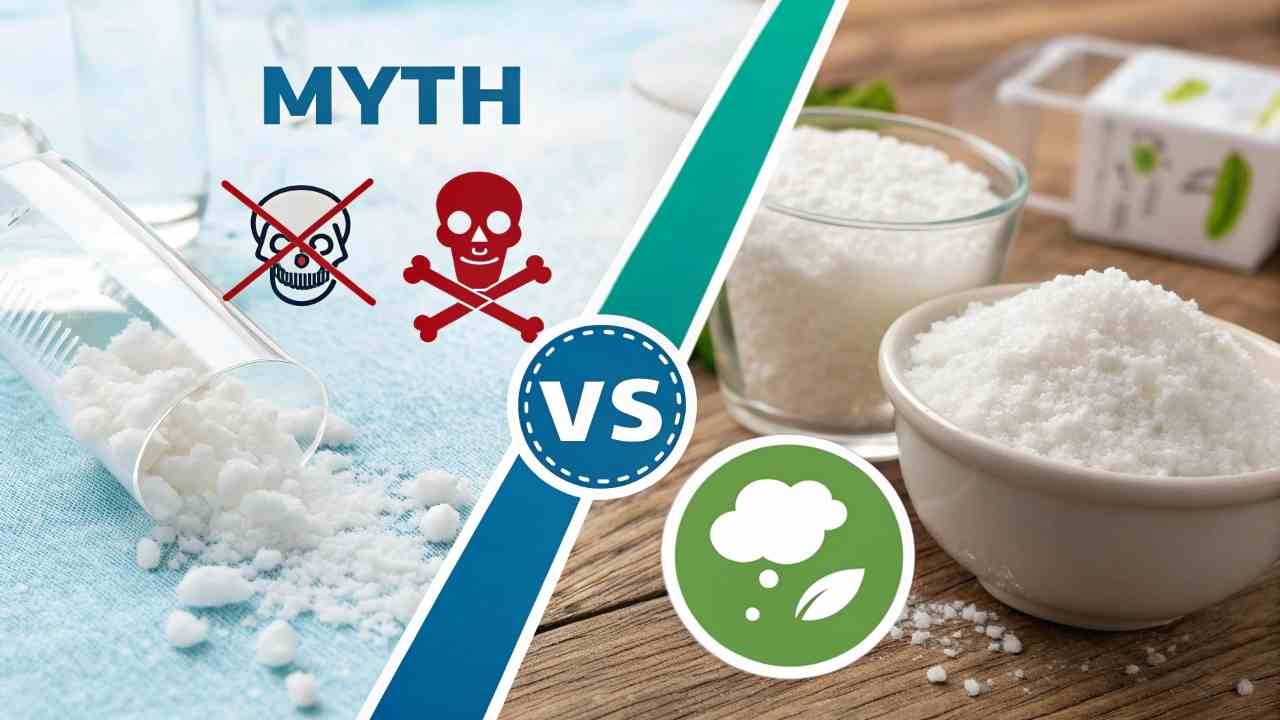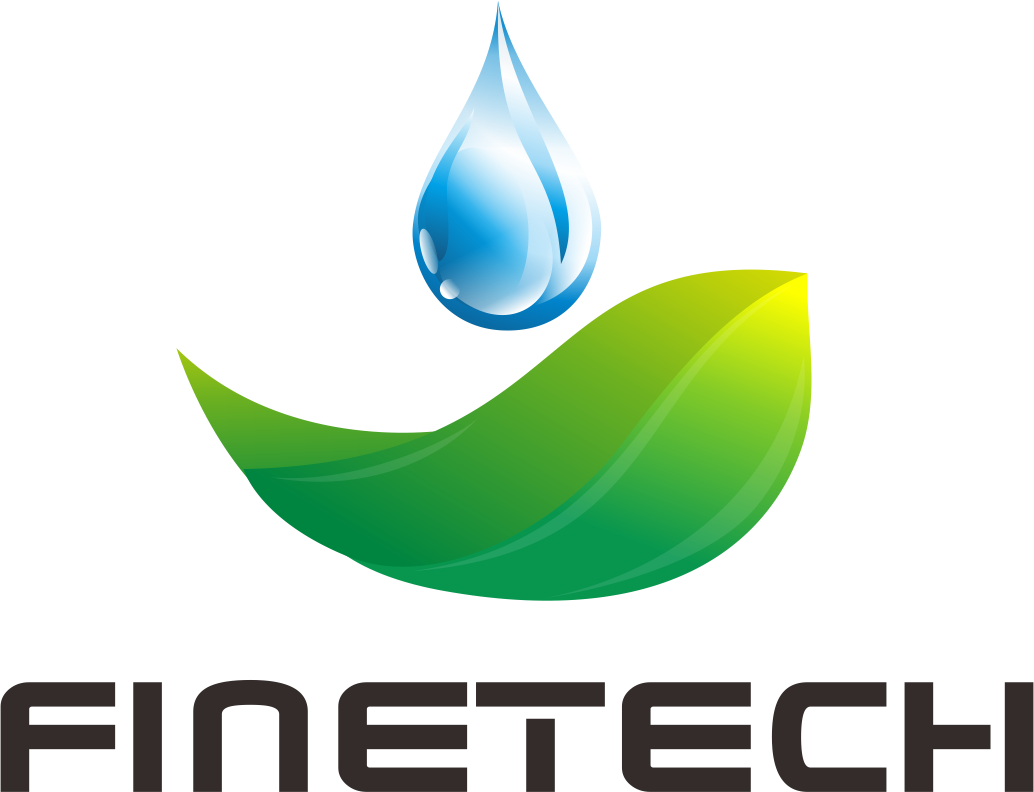Consumers asking about potassium sorbate? Worried about "chemical" names on labels? Let's tackle how brands can clearly communicate its safety and purpose.
Brands can address questions by highlighting potassium sorbate's safety, its role in preventing spoilage (like mold), its lack of taste at normal levels, and correcting common misconceptions about it.
Consumers today are more curious than ever about what's in their food. Clear, honest communication about ingredients like potassium sorbate builds trust and helps everyone make informed choices.
What should consumers know about the safety of daily Potassium Sorbate consumption?
Is potassium sorbate safe to eat every day? This is a top question. Let's provide a clear answer based on science.
Potassium sorbate is safe for daily consumption within established limits (ADI). The body metabolizes it like a fatty acid. Decades of research support its safety when used as approved.

Global health bodies (JECFA, EFSA) set an Acceptable Daily Intake (ADI) of 0-25 mg/kg body weight for sorbic acid (from potassium sorbate). Typical food use means people consume far less than this.
The body metabolizes it like common fatty acids – no build-up. Decades of research show it's not harmful (e.g., not cancer-causing) at approved levels. It's GRAS in the US1 and approved by health authorities worldwide.
Safety Points:
| Aspect | Key Consumer Message |
|---|---|
| ADI | Safe daily limit, intake usually far below |
| Metabolism | Handled naturally by the body |
| Research | Proven safe by long-term studies |
| Approval | Trusted by global health experts |
What does "Potassium Sorbate" on a label mean for the average consumer?
See "potassium sorbate" and wonder what it is? What's its job in food? Let's make it clear and simple.
"Potassium Sorbate" on a label means a safe ingredient keeps food fresh longer. It stops mold and yeast from growing, reducing spoilage and waste.

For consumers, "potassium sorbate" simply means a preservative is at work. Its job is to stop molds and yeasts2 from spoiling foods like cheese, baked goods, jams, and drinks.
This extends shelf life and prevents waste. It also enhances safety by stopping harmful molds. In Europe, it might be listed as E2023 (an EU-approved safe additive).
Simple Label Explanation:
| Question | Simple Answer | Benefit |
|---|---|---|
| What is it? | A safe ingredient to keep food fresh. | Quality food |
| Why is it there? | To stop mold/yeast growth. | Food lasts longer, safe |
By using clear, simple language, brands can help consumers understand that potassium sorbate is a helpful and safe ingredient, not something to be feared. This is something FINETECH supports by providing high-quality, compliant ingredients.
What common misconceptions about Potassium Sorbate should food manufacturers address?
Heard bad things about potassium sorbate? How can brands correct these myths? Let's tackle common misunderstandings with facts.
Common myths include potassium sorbate being highly toxic, unnatural, or causing allergies widely. Manufacturers should counter these with facts about its safety, approved use, and low allergenicity.

Misinformation creates fear. Brands can fight this:
- Myth: Toxic/Cancer-Causing. Fact: Low toxicity, not carcinogenic. Globally approved as safe.
- Myth: Unnatural Chemical4. Fact: Active part (sorbic acid) found in nature. Synthetic version is "nature-identical" and ensures purity.
- Myth: Common Allergen5. Fact: True allergies are extremely rare. Well-tolerated.
- Myth: Unnecessary. Fact: Crucial for food safety (prevents harmful molds) and reducing food waste.
Clear Facts for Consumers:
| Misconception | The Truth |
|---|---|
| Toxic/Harmful | Safe, globally approved, low toxicity. |
| "Unnatural" | Active part is nature-identical. |
| Causes Allergies | Very rare; not a common food allergen. |
| Just to hide age | Prevents spoilage & harmful mold. |
How does Potassium Sorbate make food safer by preventing mold growth?
Why is stopping mold so important? How does potassium sorbate do it? Let's quickly look at its anti-mold power.
Potassium sorbate stops mold by disrupting their cells. This prevents not just spoilage but also harmful toxins (mycotoxins) that some molds can produce, making food safer.

Molds can produce dangerous mycotoxins. Potassium sorbate (as sorbic acid) inhibits mold growth by:
- Disrupting mold cell membranes.
- Inhibiting key mold enzymes.
This action stops mold spores from growing and spreading. This is vital for foods like cheese, baked goods, and jams. It means less food waste and, more importantly, a reduced risk of illness from mycotoxins.
Anti-Mold Benefits:
| Benefit | How K-Sorbate Helps |
|---|---|
| Prevents Spoilage | Stops mold growth |
| Safety | Reduces Mycotoxin Risk |
| Longer Shelf Life | Less food waste |
Does Potassium Sorbate have a noticeable taste or odor at typical usage levels in food?
Will potassium sorbate change how food tastes or smells? A key question for consumers. Let's check its sensory impact.
At normal food usage levels (0.025% - 0.1%), potassium sorbate usually has no noticeable taste or odor. It lets the food's natural flavor shine through.

A good preservative shouldn't affect taste. Potassium sorbate, when used correctly (typically 0.025% - 0.1%), is generally undetectable6 by taste or smell.
If very high amounts are used (above limits) or if it degrades (e.g., old stock, extreme heat), slight "plastic-like" off-notes could occur, but this is rare with good practices. FINETECH ensures high-quality, fresh product.
Sensory Impact:
| Usage Level | Taste/Odor Impact |
|---|---|
| Typical (0.025-0.1%) | Usually None / Neutral |
| Very High / Degraded | Potential slight off-notes |
Conclusion
Brands can build consumer trust by clearly explaining potassium sorbate: it's safe, stops mold (preventing toxins), and usually has no taste, helping keep food good longer.
-
Learning about GRAS status can clarify how certain substances are deemed safe for consumption in the US. ↩
-
Learn about the impact of molds and yeasts on food spoilage and how preservatives like potassium sorbate combat them. ↩
-
Discover the significance of E202 as a food additive and its safety regulations in the EU. ↩
-
Exploring the nature of sorbic acid can clarify misconceptions and highlight its safety in food products. ↩
-
Learning about the rarity of true allergies can alleviate concerns and promote better understanding of food safety. ↩
-
Understanding the term 'undetectable' in food preservation can help you appreciate how certain preservatives work without altering flavor. ↩


